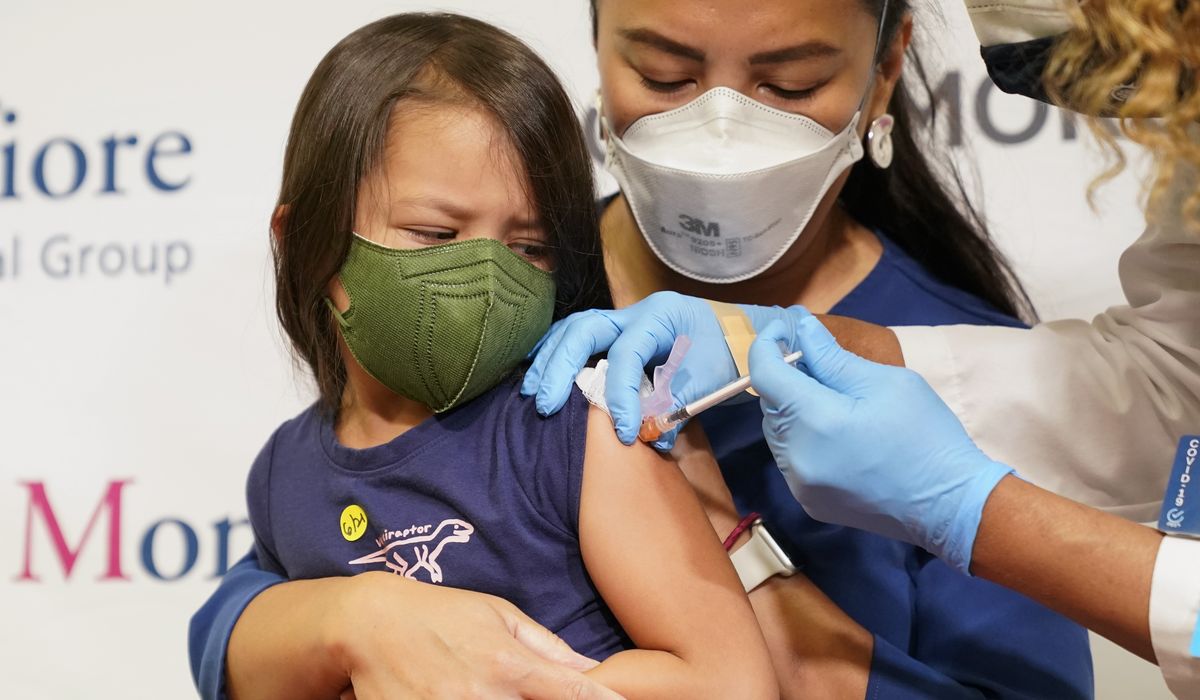


Isolated and unmotivated front-line health workers ignored pandemic crisis declarations and threw out dusty emergency plans as they improvised how to allocate scarce resources during COVID-19, a study has found.
Five public health researchers published the study Friday in JAMA Network Open. They interviewed 21 doctors and two nurses providing direct care to COVID-infected patients in California, Idaho, Minnesota and Texas from December 2020 to December 2021.
The health workers described a state of “chronic crisis” as hospitals failed to implement “unworkable” emergency plans. That left them to make morally difficult decisions about dying patients while tuning out contradictory directives from government and media sources, the study found.
In particular, doctors and nurses reported having to decide which patients received a limited number of mechanical ventilators as institutional plans to implement “triage teams” failed to materialize. Other issues included deciding how to manage kidney dialysis, medications and staff-to-patient ratios that could not be spread thin without causing inferior care.
The failure to execute an extended crisis plan occurred across institutions and regardless of each state’s pandemic politics, said Dr. Catherine Butler, the study’s lead author and an assistant professor at the University of Washington Medical Center.
“These individual clinicians did not have the information or infrastructure needed to fairly distribute resources across a population, and the burden undoubtedly contributed to moral distress and burnout,” Dr. Butler told The Washington Times. “State and institutional plans to respond in crisis did not end up being actionable, in part because these couldn’t account for the complexity of real-world resource limitation.”
The study urges medical institutions to devise better plans for future pandemics, accepting the inevitability of insufficient resources in the future.
“Ultimately, there’s not going to be a single plan that works for such a complex situation and we need to work on overlapping strategies,” said Dr. Butler, who practices medicine in the Veterans Administration Puget Sound Health Care System. “As a country, we need to explicitly acknowledge that healthcare resources are finite and build structures to support clinicians and promote fair treatment of patients.”
Doctors interviewed for the study reported feeling unsupported by “official messaging” on COVID, unprepared to make complex ethical decisions for patients and unmotivated as their sense of mission and purpose waned.
“I got the sense that nobody was in charge,” said one anonymous clinician at a California university hospital. “I had to remind myself numerous times a day, OK, nobody is coming to our rescue. If we don’t do this right now, it’s just not going to happen.”
Another clinician at an Idaho community hospital noted that administrators “never activated our triage committee” to decide with fairness which patients received access to resources.
“It ended up … becoming either first-come, first-served or who was just lucky enough to get that first phone call in when a bed came open,” the clinician said.
The report confirms the nation’s ongoing lack of preparedness for serious health emergencies, according to some infectious disease experts who were not involved in the research.
“Before the pandemic, crisis standards of care were more of a theoretical concept that arose out of the experiences of Hurricane Katrina,” said Dr. Amesh Adalja, an infectious disease specialist and senior scholar at the Johns Hopkins Center for Health Security. “However, COVID-19 made them very real for many clinicians. The paper illustrates how situational awareness was severely limited.”
Patients should note how the nation’s vast hospital bureaucracy was disconnected from the pandemic as it unfolded, added Katy Talento, an epidemiologist who served as President Trump’s top health adviser at the White House Domestic Policy Council before the pandemic.
“The main takeaway from the study is to do everything possible to avoid hospitals by prioritizing health and wellness, and getting early, outpatient treatment from practitioners who are immune to COVID-era groupthink,” Ms. Talento said.
For more information, visit The Washington Times COVID-19 resource page.
• Sean Salai can be reached at ssalai@washingtontimes.com.
